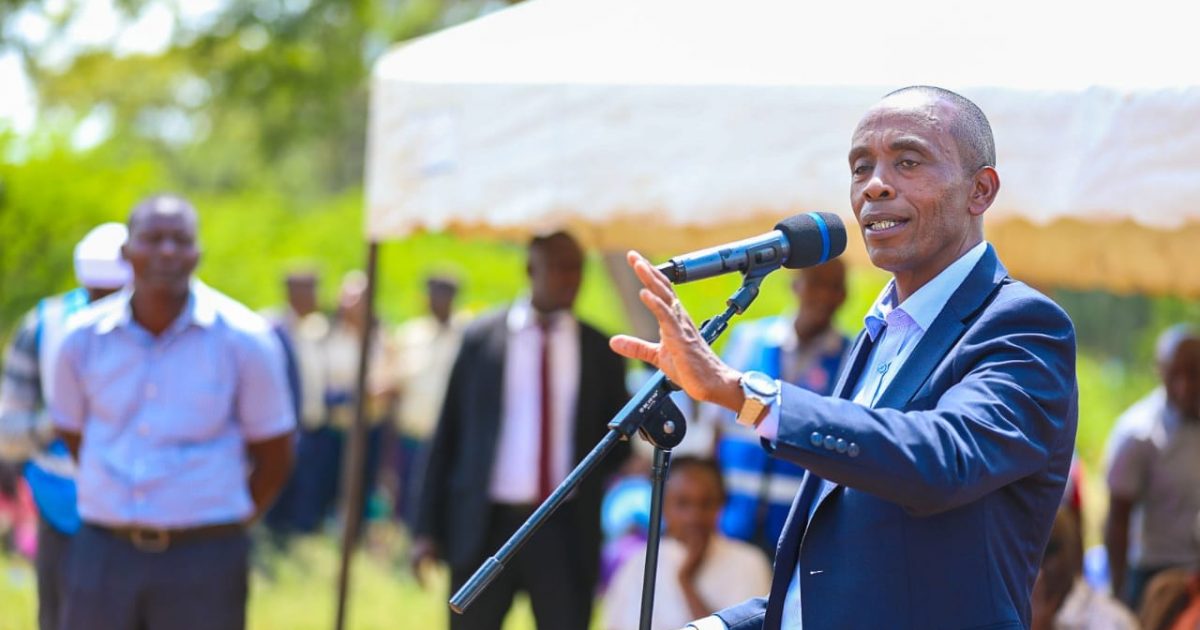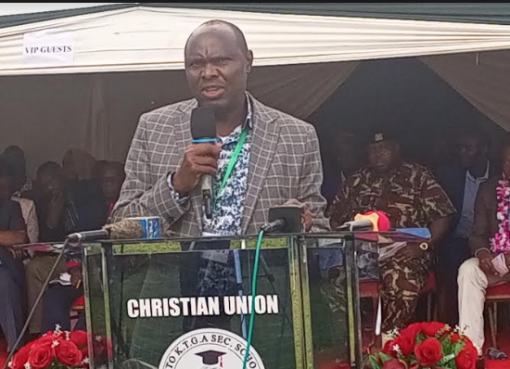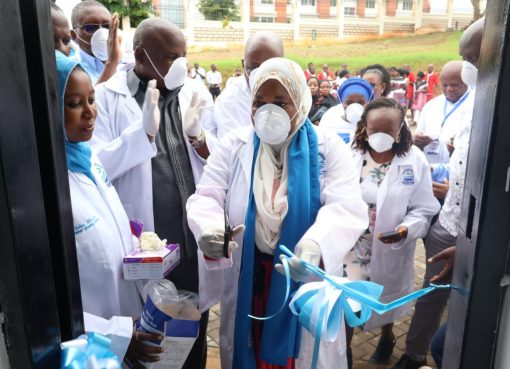The Kiambu County Government plans to reduce its electricity bills, which currently amount to up to Sh1.6 billion annually, by installing solar streetlights.
Speaking in Gatundu while issuing bursary checks on Thursday, Governor Kimani Wamatangi stated that Kiambu would be the pioneering county to adopt renewable energy fully by 2030, aligning with Sustainable Development Goal 7 for affordable and clean energy.
He announced that the county government has been spending Sh180 million per month on electricity bills and has implemented a ban on new electricity-powered streetlight installations. Instead, only solar streetlights would be installed in the county going forward.
The governor has issued directions for the gradual installation of solar power in hospitals, administrative buildings, and water projects.
“We have been spending over Sh1 billion annually on electricity, despite facing occasional disruptions due to power outages and disconnections caused by unpaid bills and low voltages.”
“In line with the world environment day celebrations that were observed this week, we are switching to solar-powered streetlights in order to reduce costs and demonstrate our commitment to green energy.” Stated the county boss.
After a successful three-month testing period, Kiambu has obtained over 6,000 solar lights. The lights will soon be installed in different locations throughout the county, with a particular focus on informal settlements, beginning this month.
The streetlights initiative is being backed by the Kenya Urban Support Programme and the Kenya Informal Sectors Programme.
The governor revealed that the county has spent Sh50 million in the 2023-24 financial year on repairing and maintaining its 19,621 grid-connected streetlights, which contribute to an annual power bill of Sh210 million.
Solar panels have a lifespan of 20 years and are resistant to vandalism and insect damage. They are reliable, efficient, and require minimal maintenance, making them a cost-effective energy solution.
Wamatangi noted that the 119 hospitals in the county collectively spend approximately Sh1.2 billion per year on electricity bills, with the Department of Health Services allocating about Sh100 million each month for this particular expense.
Level 4 and 5 hospitals spend between Sh4 million and Sh8 million on electricity bills every month, while levels 2 and 3 use between Sh5 million and Sh8 million worth of electricity monthly.
Governor Wamatangi revealed that the county had allocated Thika Level 5 hospital Sh8 million, Kiambu Level 5 Hospital Sh6 million and 4.5 million for Gatundu Level 5 hospital as electricity expenses for the month of April, adding that the county had begun implementing solar power systems for certain operations in hospitals, with the laundry section at Gatundu Level 5 hospital being powered by a solar heater, while the Kiambu level 5 hospital has a solar backup system in place.
By Hellen Lunalo





